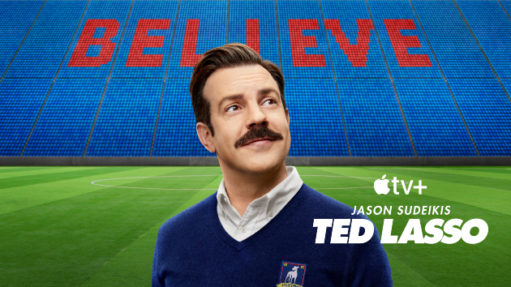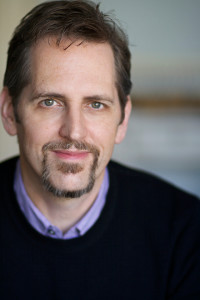We writers tend to be obsessed about how our characters change in a story. How they grow. What they learn. Their “inner journey” from beginning to end. And for good reason. This “arc” can be the most powerful and meaningful aspect of our work that makes it most connect and resonate with audiences.
However…
I think it’s a myth that the main character of a movie is always the one who changes the most, in terms of fixing something that was wrong in their approach to life. Sometimes they instead influence others to change, and, as the story theory Dramatica says, they remain mostly “steadfast.” As in Forrest Gump or Erin Brockovich.
That doesn’t mean their outer life situation and sense of things hasn’t changed. It almost always has. It’s a significant journey. Those things aren’t the same as they were at the beginning. As Blake Snyder says in Save the Cat, movies are a “transformation machine.”
And the main character has probably grown and developed in some way internally, and even been tempted or prodded to radically “change their ways” in terms of their approach to life, whether they ultimately do so or not. Very often they do, but not always.
What about TV characters? Don’t they also change? Isn’t the point of a longer “story” that you can track that change over a lengthier period of time and set of experiences? Like they do in Breaking Bad?
Yes and no. Mostly no. TV characters don’t change the way they do in feature films, most of the time. Why is that? Because…
The series is built on a set of problems and conflicts that can never really end, or the series would end.
At the conclusion of a movie, the central problems and conflicts at the heart of the story are generally over. They’ve been resolved. But you can’t do that in a series. On TV, you create somewhat smaller “problems of the week” that do get resolved in a given episode, but the bigger overall problematic situation never does. Until maybe the final episode of the final season.
Characters’ surface life situations might change. Other characters might leave the show and new ones come on. But you can bet that Ted Lasso is always going to be the optimistic fish out of water struggling to manage his team and his personal life, and his character isn’t going to significantly change. And even the characters he influences — if they radically change, then the show loses a source of conflicts, problems and stories. So one has to be very careful with that.
For instance, as team owner Rebecca becomes more his ally who wants the team to win, it could seem like she is really “changing,” and one source of conflict is being removed. But what hasn’t changed is her basic problematic life situation, related to her ex-husband and where her life seems to be now, post-divorce. That’s an ongoing source of stories for her, and was really the reason behind how she initially treated Ted. Now if she were to happily marry someone and forgive her ex- completely, and the team was to win championships (or she sold the team), that would be something else entirely.
I think writers creating original TV pilots often make the mistake of seeing a series simply as one long story, rather than a container for endless smaller stories that are each episode-length. It’s easy to do this, as there is often an element of “beginning, middle and end” to a season or a series as a whole (or even a several-episode arc). But it’s more important to understand how to write a killer half-hour or one-hour script that has its own stories (typically more than one, with different main characters) that rise to a climax within that episode (even a pilot) before resolving in the end. While keeping the show pregnant with possibilities for many stories to come.
What about limited series, you ask? Those are different. I see limited series more like an extended movie. They have some of the qualities of a series, in that they often explore multiple stories and have a beginning, middle and end within each episode. But they are also moving toward a real conclusion in the final episode, and one that often includes character change like we’d see in a movie.
What about Breaking Bad? it’s true that Walter White changes somewhat in that he amasses more power and becomes more evil over the course of the series. Which was always Vince Gilligan’s plan. But here’s what doesn’t change, from episode to episode: he’s always cooking meth, pursuing a criminal lifestyle, and having to dodge lethal competitors as well as law enforcement. He doesn’t change his mind about that. The nature of his problems don’t really change, nor does his response to them. He’s just going to fight his way through this, episode after episode. The slow arc toward evil doesn’t really change any of that. The mechanisms that drive the show stay the same. That’s important. The challenge of writing that show and the main focus, I would say, was in keeping those problems and stories coming. Finding new ways to challenge Walter and the other characters in hour-long episodes that made for great stories on their own (where we largely still root for him), while secondarily making them part of one longer story that tracks a certain gradual arc for him.
That’s not to say TV characters shouldn’t have flaws and be forced to face and examine them. And usually the best character flaws (regardless of medium) are about how they’re seeing themselves and life in a limited way, not being their best, happiest selves, and caught up in an approach and set of beliefs they adopted some time in the past that doesn’t fully work. (As opposed to being jerks who need to be nicer.)
The difference is that in a movie, the whole point is often to make the character do something about all that. To force them to, by putting them through an insanely challenging external gauntlet that actively pokes at their inner flaw. In TV, no matter how much that gets poked at, they don’t really heal and change it. Instead they tend to keep making the same sorts of mistakes and having the same sorts of problems.
Like most of us. Because change is hard. And life is often about a set of baked-in personal characteristics rubbing up against those of others, in a world that doesn’t ever seem to want to give us what we want. And there’s an endless ongoing variety of that. Which is what the best TV series tend to look like, as well.



Hi Erik, what about anthology series? Are they more like limited series in terms of character evolution?
That’s a great question and I would say yes. A one-season series, whether it’s “limited” or the first season of an “anthology” (that will have entirely different characters and story the next season) tends to feel to me like a “long feature” where you can see character change.
Thank you. It’s pretty interesting because I was developing a tv show.
Great Read! Thank you.
I have a finished a feel good drama “The Good Samaritan” where I had experienced problems (real/or other) with feeling like the MC didn’t arc enough, plus problems of keeping the story roped in at the 90-110 page mark. I ended up cutting, more cutting, and now after some really good notes I am thinking now of looking at a re-write for a series, which is why I am here, researching. I saved all those cuts, relationships, just in case.
“The difference is that in a movie, the whole point is often to make the character do something about all that. To force them to, by putting them through an insanely challenging external gauntlet that actively pokes at their inner flaw. In TV, no matter how much that gets poked at, they don’t really heal and change it. Instead they tend to keep making the same sorts of mistakes and having the same sorts of problems.”
This made me think of the show Supernatural.
Jerry Seinfeld said their mantra was, “nobody grows, nobody learns.” We love rolling through sitcom classics like Frazier, Cheers, Everybody Loves Raymond, King of Queens, etc and watch this play out again and again.
Thanks, Eric. Great advice on the difference between writing a feature film and tv episodes.
Thank you Janet!!
“Because change is hard. And life is often about a set of baked-in personal characteristics rubbing up against those of others, in a world that doesn’t ever seem to want to give us what we want.”
I keep reading this quote over and over. I’m thinking about Walter White and his journey to villainy, but more so I think of Jesse Pinkman. In the scene where he breaks down sobbing in the trailer, despite that he had done horrendous things, I wept, too. He was so severely punished and in so much pain, at that moment, in that scene, his dog-eats-dog, insanely hard-knocked life of perpetual survival mode, rubbed up against the pursuit of power (or justice) and greed of others and collided into an emotional mesh. I cared about him. I rooted for him – regardless of what I knew he had done.
Great stuff, thanks for the comment Patricia!
It’s a dark show and a high bar for any writer to even consider emulating, but it really is a master class…
The present fad with script “experts” is how the protagonist must change.
In the past, the rage was all about “Dramatic Irony”. That seems to have faded.
Then Sub Text took over. There really is no substitute for Story.
What our ancestors told around the fire. Fear, Love, Conquering challenges.
Interesting take Michael – I see what you mean about how certain priorities seem to become most talked about during certain periods. Maybe they all have relevance but any one of them, taken too far, can turn into a kind of religion and become overindexed.
Great post Erik, love your eloquent last paragraph. Misery loves company… There’s something particularly important about series and tv, sometimes comforting, or intriguing, when characters return regularly, like people or situations in real life, to entertain or otherwise stimulate our often mundane daily lives.
Thanks Barry! Yes, series seems to provide that function in a way that movies can’t, with their consistent presence in our lives on a regular basis.